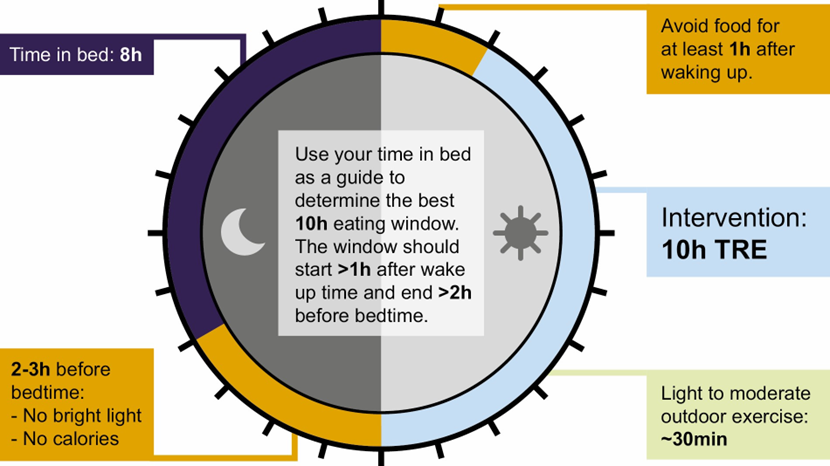Healthy Lifestyles for Bipolar Disorder
We are currently recruiting for the largest study ever conducted on how dietary interventions, when added to medication, might help people with bipolar disorder.
This study will compare the benefits of two approaches to eating: Mediterranean and Time-Restricted Eating. It’s important to note that neither food plan is meant to be a diet or a treatment. Instead, in this study we will ask you to consume the same amount of food you normally would, and to continue your regular medical care for bipolar disorder. After enrollment in the study, we’d assign you to one of the two food plans. Additionally, those taking part in the study will be paid at a rate of $25/hour for their time completing assessments.
Our goal is to understand not only if the intervention helps, but also the many different ways in which it may help—including when it helps, as well as when it does not. To achieve this, we are looking for individuals who can help us by sharing their experiences through a comprehensive range of questions while trying one of our dietary interventions. Throughout the study, we will ask many different questions because we genuinely want to gain a deep and thorough understanding of each person’s unique experience.
There are two versions of this study: a local version, and an international version. Those who live close to Berkeley, CA who might be willing to periodically visit a a locally convenient lab to get blood work done might participate in the local study, while those further from the Bay Area might participate in our entirely-remote international study.

Time-Restricted Eating
Time restricted eating involves restricting eating to 10 hours per day. To make that happen, people typically avoid eating in the first hour after they wake up and avoid eating in the couple hours before they go to sleep. To do this, you’d need a standard schedule that works well for you, and we’d work with you to determine that window.
TRE has been shown to improve sleep and circadian rhythms, and we would like to understand if it similarly has this benefit in symptoms of bipolar disorder.
The Mediterranean Diet
The Mediterranean Diet is one of the best studied ways to eat healthfully. It is based on the typical diet in the 16 countries surrounding the Mediterranean sea, and it involves eating more fruit, vegetables, whole grains and legumes, and using olive oil in place of less healthy fats.
This diet has shown to be significantly beneficial for people with heart disease, diabetes, and a number of other health conditions.
We would like to understand if the Mediterranean Diet also has benefits for symptoms of bipolar disorder.

We sincerely hope you’ll be interested in working with us.
In this study, we will ask you to log your regular eating habits for 2 weeks while we share tips on healthy sleep and goal-setting. Then, we will assign you to follow either Time-Restricted Eating or the Mediterranean Diet. At this point, we will provide you with initial instructions and practical tips to help you follow your assigned food plan. Throughout the following 8 weeks, you would continue to receive additional guidance on healthy eating and sleep to support your progress and well-being.
During this time, you would log your food daily, in order for us to see how the food plans are working for you. Multiple times throughout the study, we would also ask you to take paid surveys and interviews so we can track how things are going.
If you are interested in participating in this study, please fill out the following survey:
Note: This survey may take up to 45 minutes to complete. If you would like to be emailed a link of this survey to complete at a later time, please enter your email here.
Please feel free to also join our participant registry to be contacted if you may be a good fit for future studies. You may contact us with any questions regarding the study at calmprogram@berkeley.edu.
Healthy Lifestyles for Bipolar Disorder Collaborators
Lance J Kriegsfeld, Ph.D., Professor at the University of California Berkeley
Keanan Joyner, Ph.D., Assistant Professor at the University of California Berkeley
Greg Murray, Ph.D., Professor in Psychological Sciences at Swinburne University
Dr. Michael Berk, Ph.D., MBBCH, MMED, FF(Psych)SA, FRANCZP, Director, Alfred Deakin Professor of Psychiatry at Deakin University School of Medicine
Dr. Satchin Panda, Ph.D., Regulatory Biology Department, Salk Institute for Biological Studies
Emily Manoogian, Staff Scientist, Salk Institute for Biological Studies
Robert Villanueva, National Trainer of Trainers for the National Alliance on Mental Illness
Dr. Erin Michalak, Ph.D., Department of Psychiatry, Faculty of Medicine, CREST-BD founder